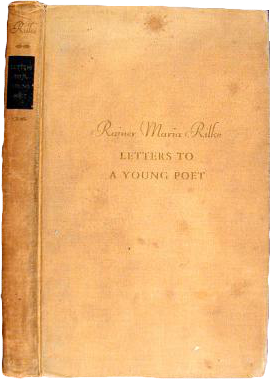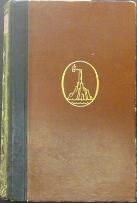Banat
Biographies
Banat
Biographies Index Est. 13 Feb 2010 at
DVHH.org by Jody
McKim Pharr.
KAPPUS,
Franz Xaver
*1883 Temeschwar
+1966 possibly Berlin2
Banat Journalist, Writer & Author;
founder of the Free Democratic Party in Berlin.
During this
time he wrote poems, humorous sketches, sketches, which were published
in newspapers and magazines in Vienna, Munich and Berlin. In 1911, he is
engaged in literary work of the Imperial War Department office and
edited the magazine Military Rundschau in Vienna. Kappus in 1914 had on
the Eastern Front, where he received a lung shot and was rushed to
hospital. In 1916 he married his nurse Alexandra in Stuttgart from
Malachowska. From 1917 he served as editor of the Belgrade News, where
he is an associate of Otto Alscher. In
1918 he received the Knight's Cross of the Order of Franz Josef and came
in the autumn of that year to Timisoara.
Between 1903 and 1908, while studying at
the military school in St. Poelten, he sent his first literary poet
Rainer Maria Rilke, a former student of the same military school,
waiting for the judgment of the master. The letters have not survived.
Instead, they kept Rilke's responses (two from France, five in Italy,
two in Sweden and one of Worpswede). These ten letters combined have
appeared in 1929 in volume Éinen years young poet letters (Letters to a
Young Poet), which was reprinted several times. In 1977 the book was
published in Romanian translation, Facla house in Timisoara. Translators
were Ulvine and John Alexander, and signed with an afterword by Andrew
A. Lillin.
First published literary attempts in
Timisoara were some expressionist poetry.
Followed World War II, in which Franz
Xaver Kappus, the Austro-Hungarian army officer, he continued to work
with the Belgrade newspaper literary news (News from Belgrade). The
first officer on par fighters, but then became a press officer.
From Expressionism to
Entertainment (Tribute to Franz Xaver Kappus) By
William Totok
In 1918, the Berlin publisher Ullstein &
Co., appeared novel “Die lebenden Vierzehn” (fourteen
survivors).
After the war, in the early 1920s, he
became editor of the newspaper Kappus Deutsche Wacht (Straja
German), which then changed its title Banater Tagblatt (Banat
Daily).
At the same time, work on the most important newspaper in the capital of
the Banat, Temeswarer Zeitung (Tiara Timisoara), and the
Swabian Volkspresse (Saxon popular press).
While living in Timisoara, he published
several short stories, sketches and novels. In 1921 appeared his most
important writing, his novel “Die im Peitsche Antlitz” (in
the face of the whip).
In 1922 appeared his novel “Der Rote
Reiter” (Red Rider).
In 1925
Kappus settled in Berlin, where he published numerous entertainment
novels without great literary ambitions. In 1935 he published
“Brautfahrt um Lena” (Lena spoken for) which is the subject of
Romanian work experience in Timisoara.
Based on his novel “Der Rote Reiter,”
Kappus wrote the film with the same name, made in 1934-1935 by
German director Rolf Randolf. (Film
info)
After the Second World War, Kappus became the founder of the
Free Democratic Party in Berlin. And published his latest novel, “Flucht
in die Liebe” (Refuge in love), which addresses aspects of the
antifascist resistance.
Works
-
In mohr gray skirt. Cadets sketches,
Vienna 1903
-
The Marquise. Comic opera by V.
Leon, 1908
-
The favorite of the king.
Comedy, 1912 (with K. Robitschek)
-
Her picture. One-act play, 1912
(with K. Robitschek)
-
Ha! What a pleasure ...
military satires, Vienna 1912
-
Average monocle. Military satires,
Vienna and Leipzig, 1913
-
Blood and iron. War stories, Stuttgart
1916
-
The new gold. Contemporary
satire, 1913 (with Siegfried Geyer)
-
The living Fourteen novel,
Berlin 1918
-
The whip in the face. Story of a
doomed man, Roman, Berlin 1918
-
The red horseman, novel, Berlin
(filmed in 1923 and 1935) 1922
-
The man with two souls, novel,
Berlin 1924
-
The billions of Caesar, Roman,
Berlin 1925
-
The death in a race car, novel,
Berlin 1925
-
The reversed face, Roman, Berlin 1925
-
The ball in the net, novel 1927
-
Yacht Estrella disappeared,
novel, Berlin 1928
-
The wife of the artist
Oldenburg, 1928
-
Rainer Maria Rilke's Letters to
a Young Poet, Insel Verlag Leipzig, 1929 (ed.)
-
Martina and the dancers',
novel, Berlin and Vienna 1929
-
Jump out of the luxury train,
novel, Berlin, 1929
-
One night many years ago,
Roman, Berlin 1930
-
People from outside. Short
stories, Timisoara 1930
-
The Hamlet of Ljubljana, novel, Berlin
1931
-
The daughter of the aviator,
novel, Berlin 1935
-
Race for life, novel, 1935
-
S wedding to Lena, novel 1935
-
A boat has sunk, Roman, Berlin
1936
-
What is with Quidam, novel 1936
-
You are Violetta! Novel, Berlin
1937
-
Flaming shadow novel, Berlin 1941
-
Escape into love, romance, Berlin 1949
Screenwriter
-
The Red Rider, 1923
-
The woman in gold, 1926
-
Les voleurs de gloire, 1926
-
The Red Rider, 1935 remake
-
The man to whom they stole the
name, 1944
Literature
-
Biographical Encyclopedia of
the Banat Germanism, Dr. Anton Peter Petri, Druck + Verlag GmbH
wide, Marquartstein 1992
-
The unemotional hikers. Franz Xaver
Kappus, recipient of the Rilke Letters to a Young Poet and his
relationships Banat by Franz Liebhard in people and times, Bucharest
1970
-
Cultural region Banat. German culture
in a European multi-ethnic region, Walter Engel (Ed.), plain text
Verlag, Essen 2007 (article by Edward Schneider, East-West
impressions and reports. To the journalistic contributions by Franz
Xaver Kappus of Timisoara and Berlin)
Various Books by or about Kappus:
 |
Letters to a Young
Poet - Franz
Xaver Kappus (Author) is a compilation of letters by Rainer
Maria Rilke. It consists of 10 letters written to a young
man (Franz Xaver Kappus) trying to choose
between a literary career and entering the Austro-Hungarian
Army. The letters were originally written to
Franz Kappus, a 19-year-old officer cadet at the Vienna
Military Academy, of which Rilke was an alumnus. Discouraged
by the prospect of life in the Austro-Hungarian Army, Kappus
began to send his poetry to the 27-year-old Rilke, seeking
both literary criticism and career advice. Their
correspondence lasted from 1902 to 1908. In 1929, three
years after Rilke's death, Kappus assembled and published
the ten letters. These ten letters--among the
most famous and beloved of this century--reveal the deeply
felt ideas about life and art that shaped the great poet's
work.
Hardcover, Publisher: Berlin:
Insel Verlag Leipzig, 1929 & Ullstein 1937, Language: German,
ASIN: B001G68ND8
These letters have been
translated into English by Stephen Mitchell and can be read
at
www.carrothers.com/rilke_main.htm |
| |
|
 |
Franz Xaver Kappus (1883 - 1966)
by
Kurt Adel
Publisher: Peter Lang GmbH (October 13, 2006), Language: German, ISBN-10: 363155401X, ISBN-13: 978-3631554012, Paperback: 204 pages
|
| |
|
 |
Die
Frau des Künstlers. o.A.
(The wife of the Artist) by
Kappus,
Franz Xaver Published 1928, 319 pgs. |
| |
|
 |
Martina und der Tänzer
- Glöckner s Bücher 5. (Martina and the
dancers - Hunchback's fifth books) 250 pgs. |
| |
|
 |
Flammende
Schatten (Blazing Shadows) 382 pgs, published in
Berlin, no date. Leather bound. |
| |
|
 |
Jacht
Estrella verschollen
(Marina
Estrella
Missing)
(Subtitle:
'The
story of
a kidnapping'):
Hanover,
Lehning
1953. First edition, 8vo, 141
pp. |

|
|
From
Expressionism to
Entertainment
By
William Totok,
Berlin,
November 14,
2006
40 years after
the death of
writer Franz
Xaver Kappus
of Timisoara,
"young poet"
which Rilke
wrote ...
"You know, dear
Mr. Kappus, but
we were happy to
receive this
letter from you.
News that I give
real and clear
as again, I look
good and, as I
reflected more
on their the
more I felt
really good. "
With these
sentences begin
the 10th - and
last - letter by
Rainer Maria
Rilke
(1875-1926)
addressed in
1908, the second
day of
Christmas, of
Paris, a young
poet in
Timisoara.
|
"You know, dear Mr. Kappus, but we were happy to receive this letter from you. News that I give real and clear as again, I look good and, as I reflected more on their the more I felt really good. "
With these sentences begin the 10th - and last - letter by Rainer Maria Rilke (1875-1926) addressed in 1908, the second day of Christmas, of Paris, a young poet in Timisoara.
Today almost forgotten, it is called Franz Xaver Kappus.
He was born on 17 May 1883 in Timisoara and dared to send his first literary creations Rilke, waiting for the verdict master.
Kappus sent Rilke's letters between 1903 and 1908 were lost.
They kept only Rilke's responses (two letters from France, five in Italy, two in Sweden and one of Worpswede), appeared later in the book "Letters to a young poet".
Since 1929, the volume of the 10 letters was reprinted several times, reaching a circulation of over 450,000 copies.
In 1977 appeared an edition in Romanian Timisoara Facla House, translated by Ulvine and John Alexander, with an afterword by Andrew A. Lillin (1915-1985, known under the name of Andreas A. Lillin, as representative of "socialist realism" in ESPLA Lillin published in 1957, the controversial novel "the trend" "Jetzt, da das Korn gemahlen" - "Now when the wheat was ground").
Because of Rilke's letters, Kappus entered literature.
Paradoxically, however, almost no one knows who was actually the recipient of the famous letters.
Before the start of World War Kappus already published several poems tributary stream media expressionist Timisoara.
As a military officer became newspaper "Belgrader Nachrichten" in the early 1920s and was editor of "Deutsche Wacht" Timisoara (which later was called "Banater Tagblatt").
Also, work the most important newspaper in the capital of Banat, "Temeswarer Zeitung", and the "Swabian Volkspresse".
During Timisoara, has published several short stories, sketches and novels.
The most important was writing, published in 1921, is the novel "Die im Peitsche Antlitz" ("whip in cheek").
This mini-novel is still more than a mere "paper era" because Kappus reports about the fate of a man stigmatized because of the fact that her features are distorted by a smile forever.
Action novel, translated into Hungarian, is going to Timisoara, although the author makes no concrete reference to the locality mentioned.
Disappointed provincial atmosphere, Kappus is decided to leave Romania in 1925, settled in Berlin.
Here many Roman public entertainment, becoming a very popular author.
Almost all writings appeared in Berlin's Kappus no literary pretensions.
Only in 1935 is, in the novel "um Brautfahrt Lena" ("spoken for Lena"), the Romanian themes, trying to process the experiences gained in Timisoara.
Based on the 1922 novel, "Der Rote Reiter" ("Red Rider"), Kappus wrote the screenplay for the movie namesake, conducted in 1934-35 by German director Rolf Randolf.
Also, Kappus has worked as a songwriter.
The text of a German known hits, "Mamatschi", music by Oskar Schima, belongs to all of Kappus.
After the Second World War, the writer is founder of the Free Democratic Party in Berlin.
Still publish one novel, "Flucht in die Liebe" ("Refuge in love"), which tackles the theme of antifascist resistance.
In Romania after the war, Franz Xaver Kappus was reissued just in time "Meltdown".
It is remarkable that he became editor of Kappus former security officer Heinz Stanescu (1921-1994), who in 1950 played a key role in repressive actions directed against the Catholic Church.
(Data output Heinz Stanescu of Security as an active officer is not known. He later became a literary critic, surveying ideological German literature in Romania. He edited the writings of the interwar period, for example Kappus's novel "Die lebenden Vierzehn" - "The 14 survivors "Kriterion Publishing, Bucharest, 1970, and satirical stories of the same writer," Der Wunderleutnant "-" Lieutenant miracle "Kriterion Publishing, Bucharest, 1971. The volume of literary studies" Berichte "-" Reports ", Publishing House for literature, Bucharest, 1967, Stanescu analyzes German literary creation in Romania of the ideological perspective of socialist realism. In 1976, Stanescu RF emigrated to Germany. He died during a trip to France, on May 13, 1994.)
Franz Xaver Kappus died on October 9, 1966, in Berlin.
Unfortunately, the celebration of 40 years from his disappearance went unnoticed.
William Totok, Berlin
Source: De la
expresionism la
divertisment
www.newspad.ro
(Translated to
English)
|
Published at
DVHH.org by Jody McKim Pharr
|
|










